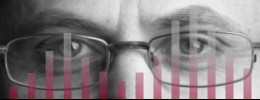
Faculty of Engineering
University of Waterloo
Pattern Recognition, Computer Vision,
Medical Imaging, Machine Intelligence

|
Contact |
 |
Hamid
R. Tizhoosh Faculty of Engineering University of Waterloo Pattern Recognition, Computer Vision, Medical Imaging, Machine Intelligence |
 |
Teaching …
|
||||||||||||||
Lectures |
Tutorials |
|
|
No particular textbook will be used. A list of references along with course notes will be provided.
Assignments: 30%
Project: 70%
Investigation of Opposite Weights on Feed-Forward Neural Learning Algorithms
Using Reinforcement Learning for Control and Navigation Problems
Application of Reinforcement learning for noise filtering in gray level images
Assignment #1 - Regression
Assignment #2
Assignment #3
Assignment #4
|
Created
by:
Log
Web Design